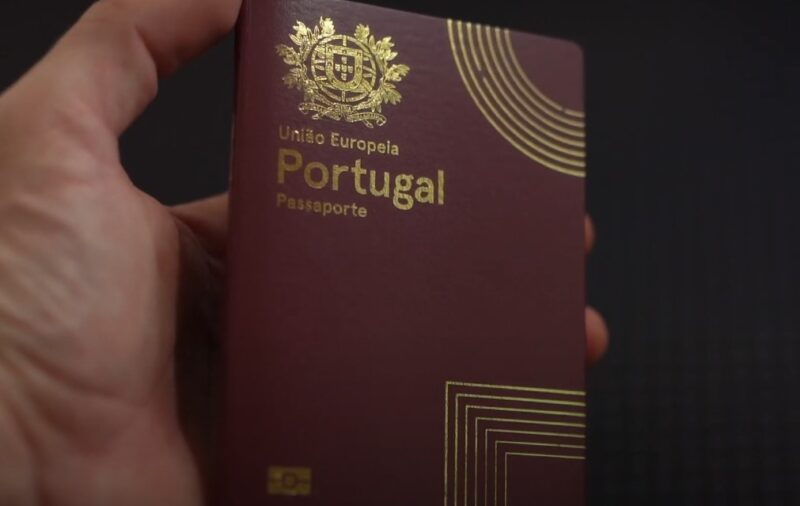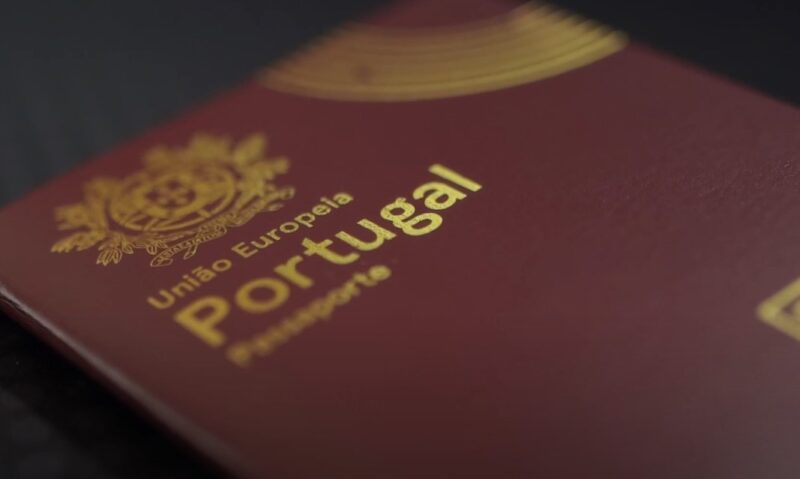If you’ve ever dreamed of holding an EU passport, allowing you to live, work, or travel freely across Europe, a Portuguese passport might just be your ticket.
Portugal offers several paths to citizenship – if you’re a resident, have ancestral ties, or are interested in investing in the country.
I’ve broken down everything you need to know in this guide so you can figure out the best route for you.
Why Consider a Portuguese Passport?

Portugal, as a member of the European Union, grants its citizens the ability to:
- Live, work, and study in any of the EU’s 27 member states without needing a visa.
- Enjoy visa-free or visa-on-arrival access to over 190 countries, including destinations like the United States, Canada, Japan, and Australia.
- Take advantage of social benefits such as healthcare, education, and social security in both Portugal and across the EU.
- Hold dual citizenship, meaning you won’t have to give up your original nationality.
Now that you know what’s at stake, let’s break down the various pathways to obtaining that sought-after Portuguese passport.
Eligibility for a Portuguese Passport
1. Citizenship by Birth (Jus Soli)
If you were born in Portugal, you might already be in luck:
- Those born to Portuguese parents automatically gain citizenship.
- If born to foreign parents, citizenship can still be acquired if the parents have legally resided in Portugal for at least one year before the birth.
2. Citizenship by Descent (Jus Sanguinis)
If your roots trace back to Portugal, you might be able to claim citizenship through your ancestors. Here’s how it works:
- If either of your parents or even your grandparents are Portuguese, you could qualify.
- However, there might be a catch: demonstrating some form of connection to the country, such as speaking the language or showcasing cultural ties, may be required.
3. Naturalization for Long-term Residents

For those who aren’t Portuguese by birth or descent, the most common way to obtain citizenship is through naturalization. The requirements generally include:
- Residency: Legal residency in Portugal for at least five years.
- Language Skills: Demonstration of basic proficiency in Portuguese (A2 level).
- Clean Record: No criminal record in Portugal or your home country.
- Financial Stability: Proof that you can support yourself.
- Community Ties: Evidence that you’re integrated into Portuguese society—like having a job, joining a local group, or volunteering.
4. Marriage to a Portuguese Citizen
Tying the knot with a Portuguese national? Congratulations! But, a marriage certificate alone won’t suffice. To apply for citizenship:
- You must be married or in a legally recognized partnership for at least three years.
- A connection to the Portuguese community is usually required, so you may need to show some involvement in local activities or organizations.
5. The Golden Visa Program: Citizenship Through Investment
View this post on Instagram
For those who have the financial means, Portugal’s Golden Visa program offers a fast track to citizenship:
- Invest at least €500,000 in real estate (or €400,000 in low-density areas).
- Contribute €350,000 to scientific research or technology.
- Create jobs or invest in Portuguese businesses.
The Step-by-Step Process to Get a Portuguese Passport
Step 1: Obtain Portuguese Citizenship
Before applying for a passport, you need to officially become a Portuguese citizen. Here’s what’s typically involved:
- Complete a Citizenship Application: Submit forms and documentation to prove your eligibility.
- Gather Necessary Documents: This includes your birth certificate, proof of residency, and a clean criminal record.
- Pass a Basic Language Test: If you’re going the naturalization route, you’ll need to show basic Portuguese language skills.
Step 2: Apply for a Portuguese Passport
Once you’re officially a citizen, applying for a passport is fairly straightforward. You’ll need:
- A valid Portuguese ID card (Cartão de Cidadão).
- A birth certificate (if not already on file).
- Two passport-sized photos (often taken at the passport office).
- Proof of address and a tax ID number.
- The passport application form, which you can get at a SEF office or Portuguese consulate.
Step 3: Submit Your Application

You have a few options for where to submit your passport application:
- In person at a SEF (Serviço de Estrangeiros e Fronteiras) office or civil registry.
- At a Portuguese consulate if you’re applying from abroad.
- Online via the ePortugal platform, but mainly for renewals.
Fees and Processing Times
- Standard Fee: Around €65 for adults and €30 for children.
- Expedited Service: Available for a higher fee (€85-100), with processing in 2-3 days.
- Regular Processing: Takes about 5-10 business days.
How Long Is a Portuguese Passport Valid?
- For Adults: 10 years.
- For Minors (under 18): 5 years.
Special Categories
1. Citizenship for Descendants of Sephardic Jews
Portugal offers a unique opportunity for descendants of Sephardic Jews who were expelled during the Inquisition. If you can prove Sephardic ancestry, you might qualify for citizenship, provided you also have connections to a Sephardic community.
2. Citizenship for Nationals of Former Portuguese Colonies
If you’re from Brazil, Mozambique, Angola, or Goa (India), the process might be easier due to Portugal’s historical ties with these regions. Special provisions may simplify your path to citizenship.
Tips and Common Challenges

A few hurdles might pop up along the way, but with some preparation, you can navigate them smoothly:
- Language Barrier: The A2 language test might be challenging if you don’t speak Portuguese. Try language apps like Duolingo or take local classes to prepare.
- Document Preparation: Make sure all documents are properly translated and apostilled. Missing or incomplete paperwork can cause delays.
- Consider Legal Help: For more complex cases, especially when claiming citizenship by descent or investment, hiring a lawyer familiar with Portuguese immigration laws can save you a lot of headaches.
Renewing or Replacing Your Portuguese Passport
- Renewal: You can renew your passport online (if already registered) or in person. It’s wise to renew at least six months before your passport expires if you’re planning on traveling.
- Lost or Stolen Passports: If your passport is lost or stolen, report it to the police immediately (if abroad) and contact the nearest Portuguese consulate. A temporary passport can be issued in emergencies.
Final Thoughts
Obtaining a Portuguese passport is a fantastic opportunity if you’re looking to live in Europe, travel freely, or simply gain access to new social and economic benefits.
Portugal’s flexible policies make it one of the more accessible EU countries to gain citizenship, especially if you have ancestral ties or the financial means to invest.
Hope this guide helps you on your path to becoming a proud holder of a Portuguese passport! Let me know if you have any questions or need a nudge in the right direction—I’m here to help.

